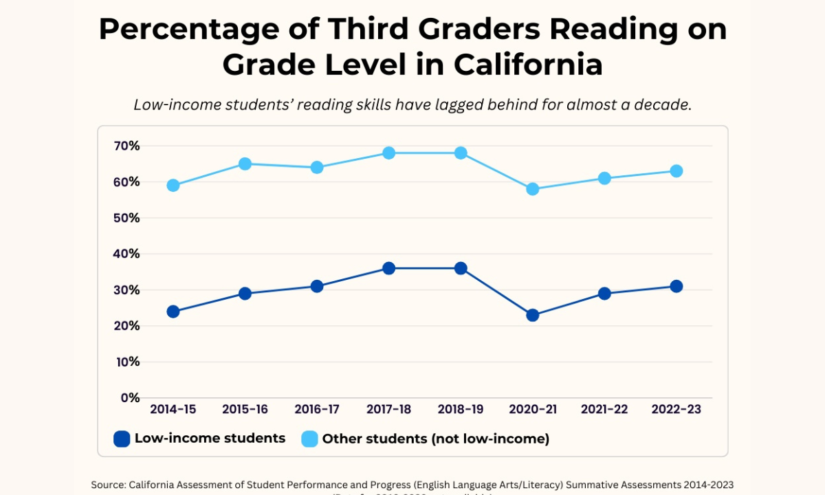During this summer, a team of students from MIT embarked on a journey to the sou …
New Bill Aims to Improve Literacy Skills for California Students
Carlos Changemaker

Many third graders in California struggle to read at grade level, prompting proposed legislation that would require teachers to utilize the phonics-based science of reading.
Assemblymember Blanca Rubio (D-Baldwin Park) and 13 other legislators have introduced a bill advocating the incorporation of the science of reading into the state’s English curriculum, emphasizing phonics, phonemic awareness, oral reading fluency, vocabulary, and comprehension.
The proposed bill aims to align classroom instructional materials and curriculum with the science of reading while focusing on enhancing professional development for teachers and monitoring the progress of struggling readers.
According to the bill submitted to the Assembly’s education and higher education committee in February, “All English language arts, English language development, and reading textbooks and instructional materials for transitional kindergarten, kindergarten, and grades 1 to 8 shall adhere to the science of reading.”
Educators would need a waiver to use materials that do not align with the science of reading, with bipartisan support from 12 Democrats and two Republicans in the state assembly.
A policy brief from EdVoice, revealed 60% of California students are not reading at grade level skills by third grade.
Assemblymember Blanca Rubio noted, “California is failing its students, especially diverse students from low-income families,” citing that 31% of third graders from low-income families were reading on grade level in the 2022-2023 school year compared to 63% of non-low-income students.
Eugenia Mora-Flores, a USC professor, highlighted the persistent low literacy performance among California students, particularly in large districts like L.A. Unified, emphasizing the need to enhance literacy education.
With a focus on improving literacy outcomes, legislators advocate for the integration of the science of reading in teaching practices, emphasizing phonics-based instruction over whole language approaches.
Pedro Noguera, USC’s education school dean, emphasized the importance of early literacy skills for academic success, underscoring the significance of the science of reading in developing proficient readers.
Noguera stresses that while mandating the use of phonics is crucial, a holistic literacy approach involving high-quality books is essential for improving literacy skills.
The bill mandates that all relevant instructional materials adhere to the science of reading, joining numerous states nationwide that have implemented similar legislation.
Several states, including Indiana, Michigan, Utah, and others, have already enforced the science of reading in their schools, aiming to improve literacy rates and academic outcomes.
Despite California’s low literacy rates, the success of the bill hinges on its effective implementation across the state, ensuring that students receive comprehensive literacy instruction.


